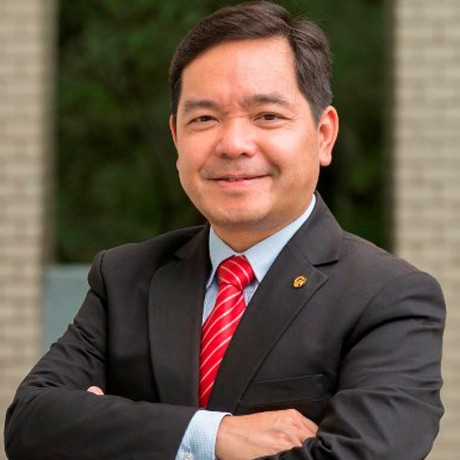
Vice-President and Lam Man Tsan Chair Professor of Comparative Policy
Professor Mok Ka Ho, Joshua
Generating the knowledge that can transform our world
The idea of universities as ivory towers of learning and research is anathema to Professor Joshua Mok, Lingnan’s Vice President and Dean of School of Graduate Studies. He is, therefore, constantly striving to ensure Lingnan, its faculty and students are outward-looking, active agents, using their knowledge and skills to play an integral role in the development of local, regional and global society.
In this regard, he holds that the university’s Research Postgraduate (RPG) programme is vitally important, because only evidenced-based criticisms of society have true legitimacy. “Social scientists, for example, should conduct serious research, and their research findings should be the basis of their comments on current policy and their advocacy for positive change.”
A university with a unique status
While Lingnan may be famed as Hong Kong’s liberal arts university, Professor Mok points out it differs from its US counterparts in that it offers much more than simply undergraduate progammes. “I would position Lingnan as a very fine liberal arts university, that is also very strong in humanities and social science research.”
He notes that, with its blend of Eastern and Western influences extending beyond such academic traditions, to intellectual and cultural ones, as well, the university has been able to take on a special regional role. The fact that on the Mainland, Lingnan is seen as a bridge to the world, while internationally it is viewed as a conduit to China, has helped in the development of rich research and teaching collaborations with universities across Greater China and around the globe.
Asking the awkward questions
When he challenges his RPG students to produce truly significant work, Professor Mok’s personal research track record allows him to fully appreciate the rigours involved. For his own postgraduate project, he didn’t opt for a safe, esoteric subject, but instead chose what was then - in the immediate aftermath of 1989’s events in Beijing’s Tiananmen Square - an extremely hot topic. First in his MPhil, and subsequently in the PhD thesis he completed at the London School of Economics, he looked at the then relationship between Chinese intellectuals and the state. “In a way, I was politically dangerous because I was interviewing dissident intellectuals in exile,” he accepts.
However, his career survived unscathed, and he has gone on to publish extensively. “I have two broad research areas,” he says. The first is comparative education policy and governance, and his ongoing work in this field includes a project funded by the UK’s Economic and Social Research Council on the career choices of Asian students.
His second preoccupation is social policy and policy regime change in China. “I am curious as to whether the Chinese government is really seriously investing in social security and the promotion of social cohesion.” A paper of Professor Mok’s, published this year by the Journal of European Social Policy, dissents from the view commonly accepted in the West that the Chinese government is in the process of enacting a policy of welfare universalism.
Alongside his research, Professor Mok also maintains a direct engagement with society. “I identify myself as a public intellectual, but not one who focuses only on publishing four papers a year, but who one who also seeks to serve the wider community with impact.” This service currently takes the form of participation in a number of government commissions and committees, and in projects such as the HKJC-funded promotion of ‘smart’ ageing in the local community.
The postgraduate research experience
Despite his senior position, Professor Mok’s passion for all aspects of his work remains undimmed. “I still teach three courses across the year, and I love it,” he admits.
He brings his enthusiasm for comparative international research to his work with postgraduate students, and in his classes, interactivity and collaboration are encouraged. Though he very much enjoys sharing the results of his own work, he’s also eager to listen, because, as he points out to his students, “There are no perfect answers, no model answers.”
After an initial Academic and Research Workshop, ongoing support is available throughout every stage of Lingnan’s RPG programmes: from the honing of the thesis topic, to instruction in sophisticated research methods and statistical techniques.
“In our masters programmes, and even our doctorate programmes, we also place considerable emphasis on experiential learning through interactions with practitioners as well as leading professors,” Professor Mok points out.
These learning experiences range from an inter-disciplinary conference for postgraduate students hosted at Lingnan, to an international summer school on research methods, run in collaboration with the University of Oxford, and consisting of one week in Hong Kong and two weeks in Oxford.
“We also have a PhD student exchange programme, so our students can go for a semester, or a half-year programme, to our sister universities in the UK and Greater China, and get a co-supervisor for their dissertation. My PhD students will be going to the University of Bath.”

